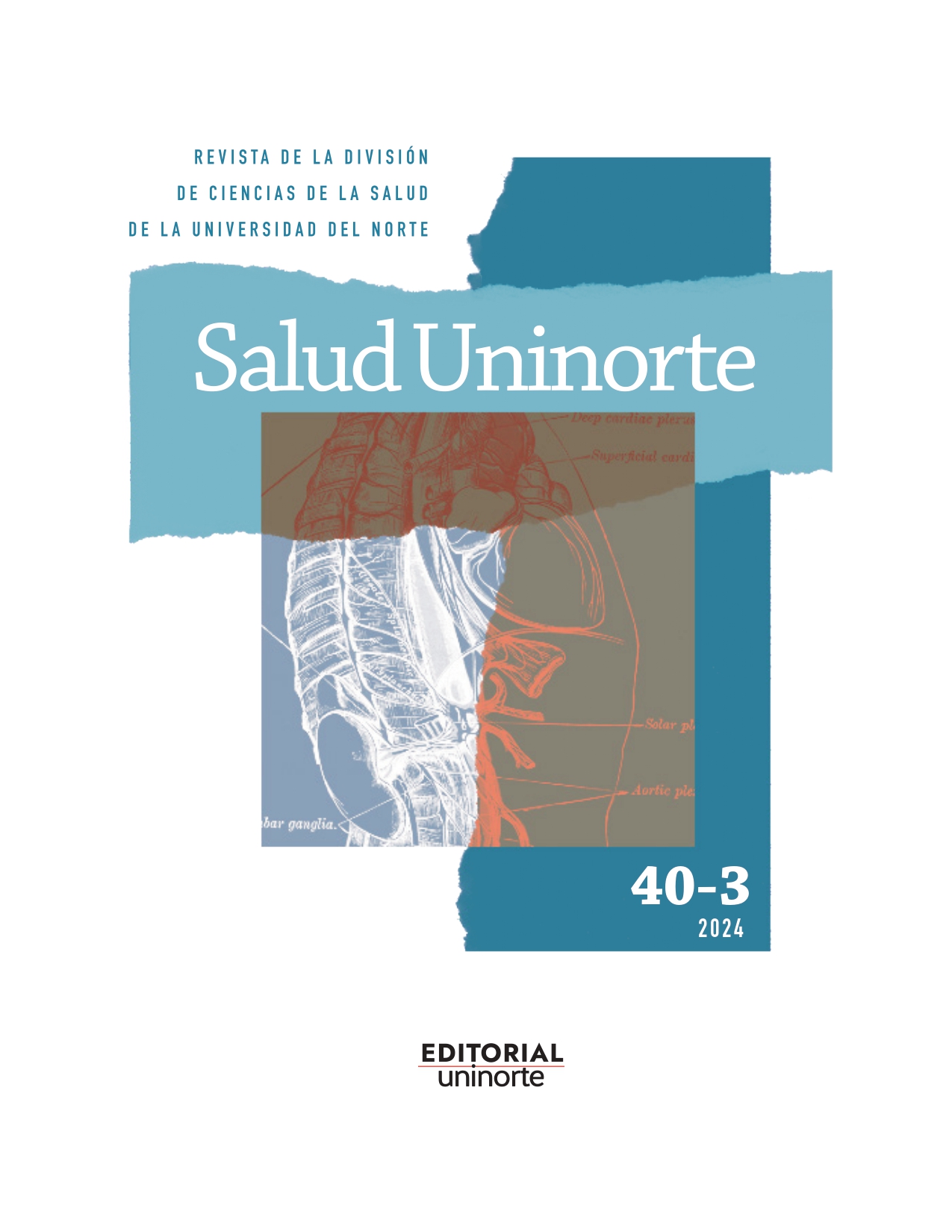Relación entre autoestima positiva, género y ansiedad social en estudiantes universitarios en tiempos de pandemia
DOI:
https://doi.org/10.14482/sun.40.03.618.922Palabras clave:
Adaptación escolar, Educación superior, Autoestima, Salud mentalResumen
Objetivo: El objetivo de este estudio fue analizar la relación de la autoestima positiva, el género y los niveles de ansiedad social de estudiantes universitarios durante el segundo año de la pandemia de Covid-19.
Materiales y método: La investigación se desarrolló desde un paradigma cuantitativo y utilizó un diseño no experimental transversal correlacional-causal. La muestra estuvo conformada por 212 universitarios, quienes fueron evaluados mediante la Escala de Rosenberg para Autoestima (ERA) y el Cuestionario de Ansiedad Social para Adultos (CASO). Se realizaron análisis descriptivos y comparaciones en función del género de los participantes. Se utilizó una regresión logística binaria para evaluar la asociación entre la autoestima positiva, el género y la ansiedad social.
Resultados: Existe una asociación significativa y negativa entre la autoestima positiva y la ansiedad social. Dos indicadores de autoestima positiva predijeron de manera significativa y negativa niveles elevados de ansiedad. Además, el género femenino se asoció con un mayor riesgo de niveles elevados de ansiedad social. Este modelo explicó el 16,4 % (Cox y Snell R2) y el 28 % (Nagelkerke R2) de la varianza total, respectivamente.
Conclusión: Los resultados destacan la importancia de promover la autoestima positiva como un factor de protección en la salud mental durante situaciones de crisis. Además, subrayan la necesidad de abordar desde una perspectiva de género el desarrollo de estrategias de apoyo en entornos educativos. Este estudio se suma a la literatura existente que reconoce la autoestima positiva como un recurso interno que puede influir en la forma en que las personas experimentan y responden a la ansiedad.
Descargas
Publicado
Cómo citar
Número
Sección
Licencia
(COPIE Y PEGUE EL SIGUIENTE TEXTO EN UN ARCHIVO TIPO WORD CON TODOS LOS DATOS Y FIRMAS DE LOS AUTORES, ANEXE AL PRESENTE ENVIO JUNTO CON LOS DEMAS DOCUMENTOS)
AUTORIZACIÓN PARA REPRODUCCIÓN, USO, PUBLICACIÓN Y DIVULGACIÓN DE UNA OBRA LITERARIA, ARTISTICA O CIENTIFICA
NOMBRE DE AUTOR y/o AUTORES de la obra y/o artículo, mayor de edad, vecino de la ciudad de , identificado con cédula de ciudadanía/ pasaporte No. , expedida en , en uso de sus facultades físicas y mentales, parte que en adelante se denominará el AUTOR, suscribe la siguiente autorización con el fin de que se realice la reproducción, uso , comunicación y publicación de una obra, en los siguientes términos:
1. Que, independientemente de las reglamentaciones legales existentes en razón a la vinculación de las partes de este contrato, y cualquier clase de presunción legal existente, las partes acuerdan que el AUTOR autoriza de manera pura y simple a La UNIVERSIDAD DEL NORTE , con el fin de que se utilice el material denominado en la Revista
2. Que dicha autorización se hace con carácter exclusivo y recaerá en especial sobre los derechos de reproducción de la obra, por cualquier medio conocido o por conocerse, comunicación pública de la obra, a cualquier titulo y aun por fuera del ámbito académico, distribución y comercialización de la obra, directamente o con terceras personas, con fines comerciales o netamente educativos, transformación de la obra, a través del cambio de soporte físico, digitalización, traducciones, adaptaciones o cualquier otra forma de generar obras derivadas. No obstante lo anterior, la enunciación de las autorizaciones es meramente enunciativa y no descartan nuevas formas de explotación económica y editorial no descritas en este contrato por parte del AUTOR del artículo, a modo individual.
3. Declara que el artículo es original y que es de su creación exclusiva, no existiendo impedimento de ninguna naturaleza para la autorización que está haciendo, respondiendo además por cualquier acción de reivindicación, plagio u otra clase de reclamación que al respecto pudiera sobrevenir.
4. Que dicha autorización se hace a título gratuito.
5. Los derechos morales de autor sobre el artículo corresponden exclusivamente al AUTOR y en tal virtud, la UNIVERIDAD se obliga a reconocerlos expresamente y a respetarlos de manera rigurosa.
EL AUTOR













